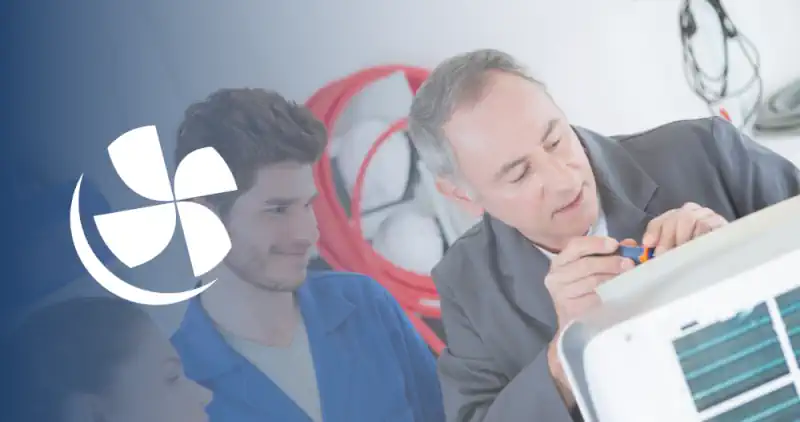
HVAC technician training can take as few as six months for certificate programs and up to five years for a full apprenticeship. No matter which route you choose, you’ll finish prepared for a career in heating, ventilation, and air conditioning.
Different HVAC Program Lengths
You can train as an HVAC technician through several different program formats. While these training paths vary in length, most take less than two years—and some take much less time than that.
Certificate programs, one of the most common options, can be completed in as few as 6 months. Below is a breakdown of each pathway and how long they typically take to complete.
- Certificate Program: 6–12 months
- Associate Degree: 2 years
- Bachelor's Degree: 4 years
- Apprenticeship: 3–5 years of on-the-job training plus 600 classroom hours
Your ideal training format will depend on the time you want to spend in school, how quickly you want to begin working, and what your long-term career goals are.
Associate and bachelor's degrees often include general education requirements like math and writing, while certificate programs focus entirely on the HVAC trade—helping you enter the industry quickly.
HVAC technicians earned an average salary of $62,690 in 2024 (bls.gov).
Find an HVAC training program near you by entering your ZIP Code.
Is HVAC Training Hard?
HVAC may feel intimidating at first, but remember—everything you learn builds step by step. Instructors walk you through every concept and help you master both classroom and hands-on skills.
You’ll need to be comfortable with:
- Math: Algebra, fractions, decimals, and basic calculations.
- Logic: Understanding circuits, reading blueprints, and interpreting charts.
- Physics/Chemistry: Especially helpful for learning refrigeration principles.
Typical HVAC coursework includes:
- Fundamentals of electricity
- Refrigeration basics
- Comfort systems and airflow
- Refrigeration systems
- Advanced troubleshooting
After Your Time in a General HVAC Program
Once you complete a trade school HVAC program, you’ll be ready to start applying for jobs. However, your state may require a license, and every technician should earn the EPA Section 608 certification.
EPA Section 608 Certification
The EPA 608 allows you to legally work with refrigerants. The initial exam has 25 questions and is open book. Your HVAC program will prepare you for these tests, and the certification never expires—meaning you won’t need to renew it.
NATE Certification
Later in your career, you may choose to pursue NATE certification. Most NATE exams require months or years of field experience. Passing these exams demonstrates strong proficiency to employers and customers.
With your training and certifications complete, you’ll be ready to begin your HVAC career.
Find a local HVAC school and get started today.
Reference: bls.gov
Frequently Asked Questions
How fast can I finish HVAC training?
Some certificate programs can be completed in as little as six months, allowing you to enter the workforce quickly.
Is an HVAC apprenticeship worth it?
Apprenticeships take longer (3–5 years), but you earn income while training and gain extensive hands-on experience.
Do I need the EPA 608 certification to get hired?
Yes. Most employers require EPA 608 certification since it allows technicians to handle refrigerants legally.
Does HVAC training include job placement help?
Many trade schools offer career support services, including interview prep and local employer connections.





